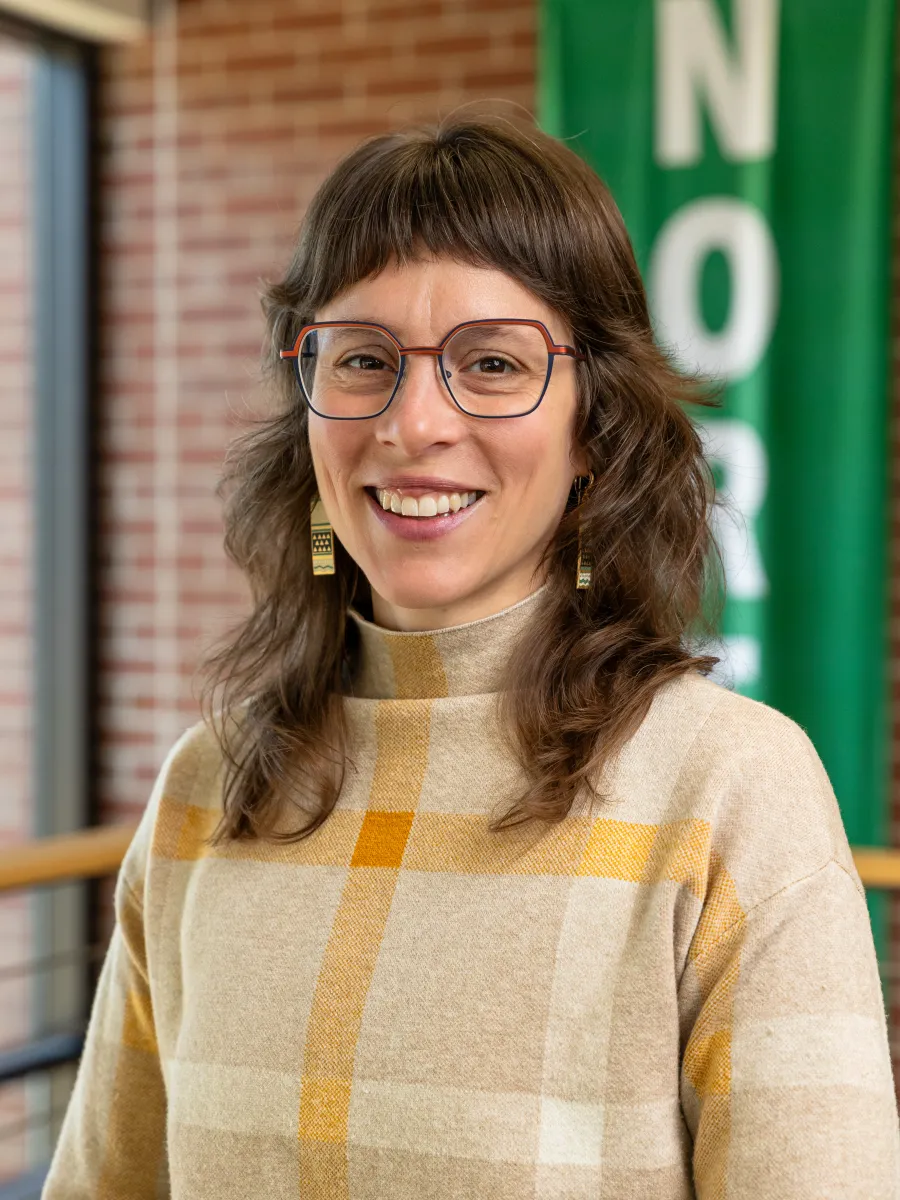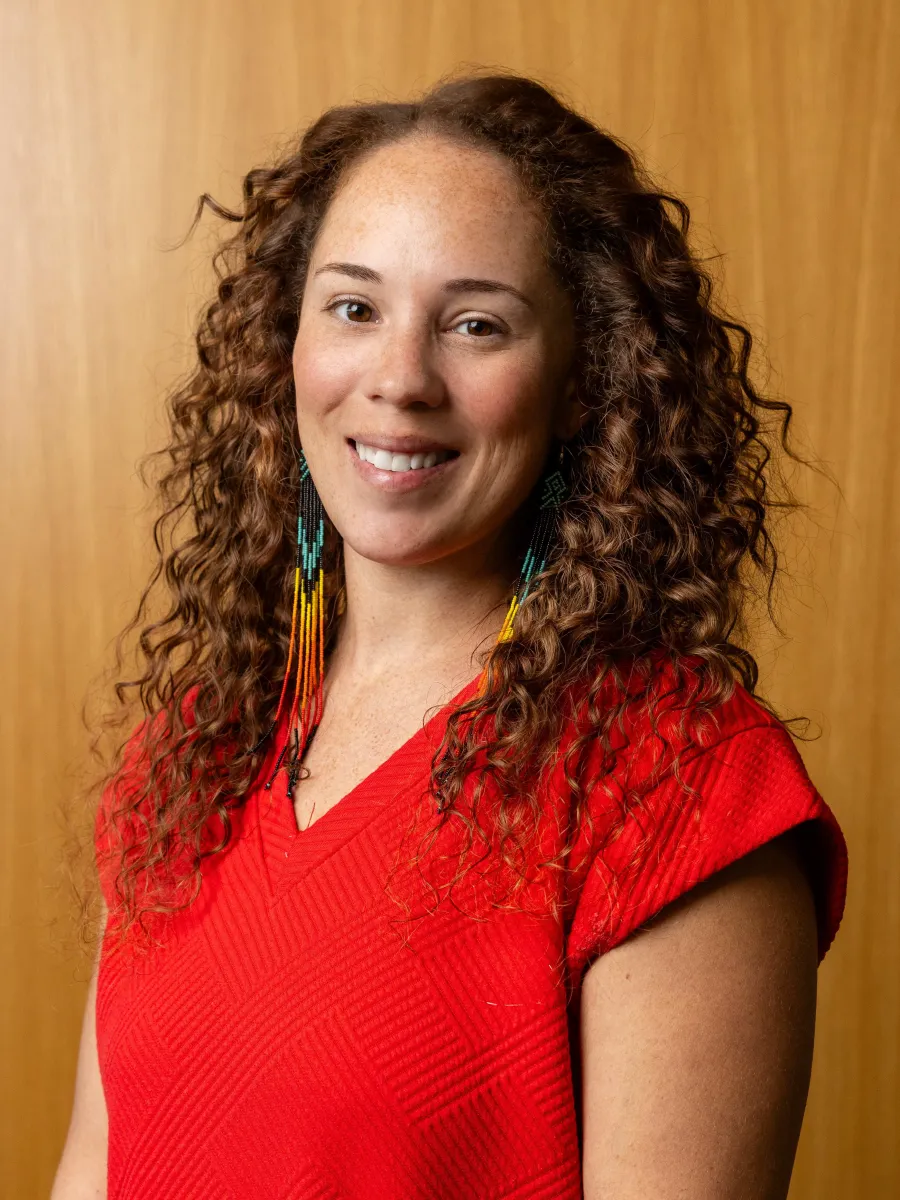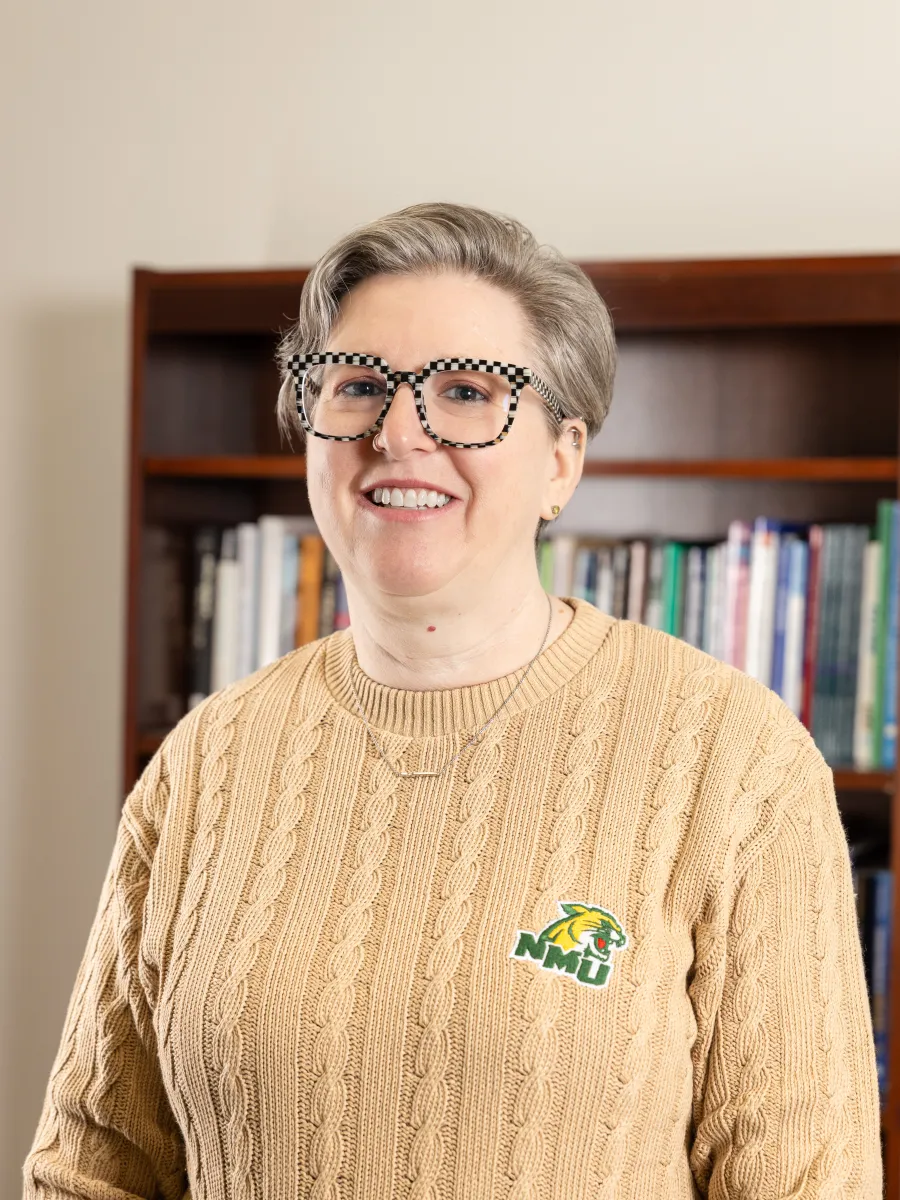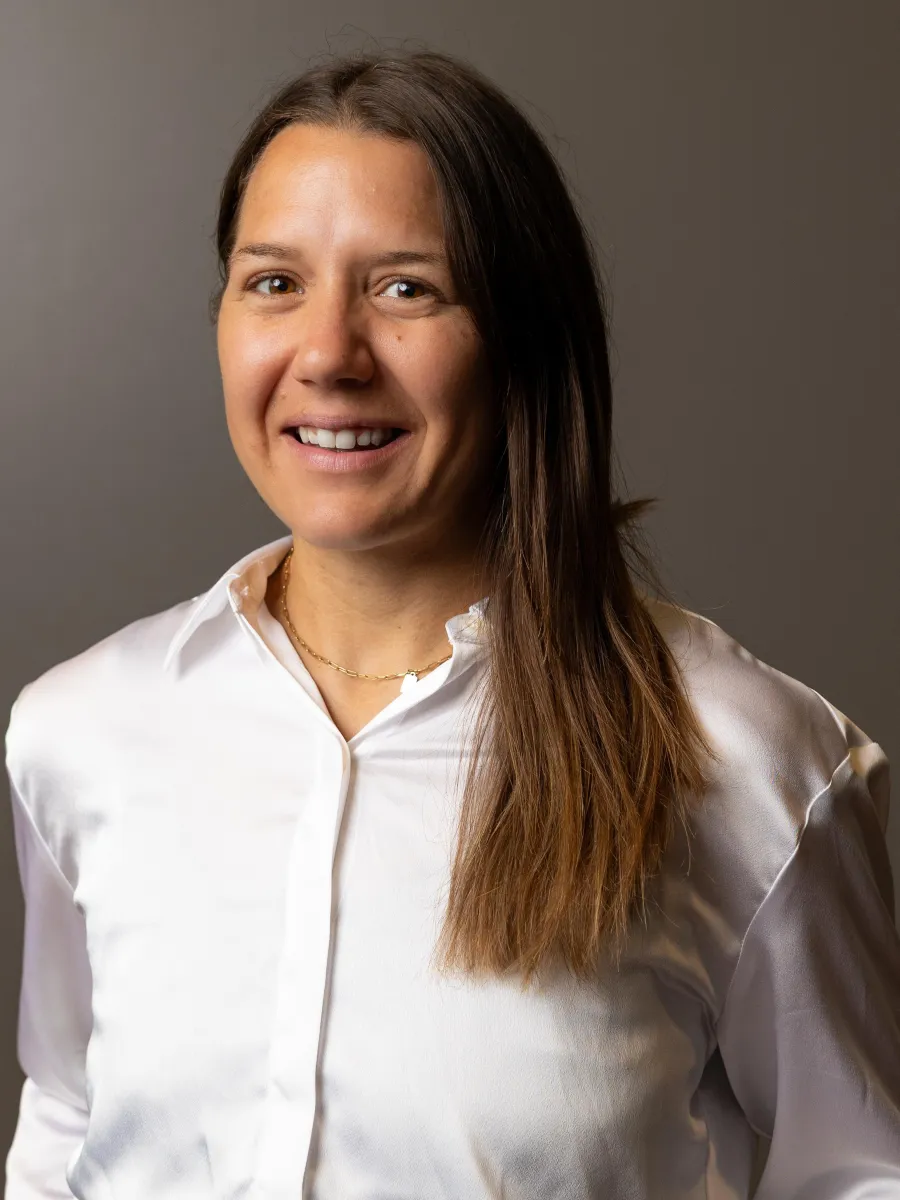
Caroline Cheng
MSW Field Director and Associate Professor
ccheng@nmu.edu 906-227-3220Office Location:
2413 Jamrich Hall

Sarah Carlson
Associate Professor and MSW Program Director
sarahcar@nmu.edu 906-227-2726Office Location:
2410 Jamrich Hall
Office Hours:
Please contact Sarah to schedule a meeting in-person, or via Zoom or phone.

Ann Crandell-Williams
BSW Program Director and Associate Professor
acrandel@nmu.edu 906-227-1115Office Location:
2408 Jamrich Hall

Naima Hasan-Jones
Assistant Professor
naijones@nmu.edu 906-227-1418Office Location:
2418A Jamrich Hall

LaMart Hightower
Department Head and Associate Professor
lhightow@nmu.edu 906-227-2119Office Location:
2412 Jamrich Hall

Rachel Holman
Assistant Professor
rholman@nmu.edu 906-227-1419Office Location:
2418 Jamrich Hall

Karl Johnson
Associate Professor
karjohns@nmu.edu 906-227-1117Office Location:
2407 Jamrich Hall

Elissa Kent
Assistant Department Head, BSW Field Director and Assistant Professor
ekent@nmu.edu 906-227-6425Office Location:
2409 Jamrich Hall

Vikash Kumar
Associate Professor
vkumar@nmu.edu 906-227-1116Office Location:
2402 Jamrich Hall

Abigail Kauffman Wyche
Professor
awyche@nmu.edu 906-227-1118Office Location:
2406 Jamrich Hall

Brian Lingle
Assistant Professor
blingle@nmu.edu 906-227-2861Office Location:
2416 Jamrich Hall

Ashley Provost
Assistant Field Director and Assistant Professor
asprovos@nmu.edu 906-227-3222Office Location:
2411 Jamrich Hall

sal ryman
Assistant Professor
sryman@nmu.edu 906-227-2918Office Location:
2417 Jamrich Hall
Mino-bimose'idiwag Program (Walking the Path Together)

Kaitlyn Bamm
Graduate Administrative Assistant, Mino-bimose’idiwag (Walking the Path Together)
kbamm@nmu.edu 906-227-1153Office Location:
2414 Jamrich Hall

Sara McClanathan
Graduate Administrative Assistant, Mino-bimose’idiwag (Walking the Path Together)
smcclana@nmu.edu 906-227-1140Adjunct Faculty

Michelle Grunert
melliott@nmu.edu
Gabby Juidici
gjuidici@nmu.eduAdministrative Staff

Tony Barnes
Assistant-Director Student Success
anbarnes@nmu.edu 906-227-2904Office Location:
3302.1 Hedgcock




Grace Rieger
Graduate Administrative Assistant, MSW Program
grieger@nmu.edu 906-227-1130Office Location:
2414 Jamrich

Jamie Weeder
Graduate Administrative Assistant, Department of Social Work
jweeder@nmu.edu 906-227-1190Office Location:
2415 Jamrich

Adjunct Faculty Opportunities
The Social Work department has a need for adjunct faculty from time to time and we are interested in identifying potential instructors.
For social work courses, please send vita to:
LaMart Hightower, Ph.D., Department Head
Department of Social Work
Northern Michigan University
1401 Presque Isle Avenue
Marquette, MI 49855
or send an e-mail attachment to lhightow@nmu.edu
The minimum academic requirement to teach social work courses is the MSW degree. Generally, a minimum of two years of post-MSW practice experience is also expected.
Research
The United States has a lengthy history of treating individuals experiencing substance use disorders (SUDs) from an abstinence-only framework. Harm reduction practices have grown a large base of empirical support in other parts of the world and have become central to treating individuals with SUDs. Within the United States, however, a substantial number of residential SUD treatment programs that continue to perpetuate an abstinence-only framework, which creates a lack of access for people who seek a harm reduction approach—and who likely need it the most. In this study, 66 residential treatment programs in Michigan were examined to determine whether they operated from an abstinence-only or harm reduction framework, and whether there were differences in success rates between the two models.
As COVID-19 pandemic has disproportionately and negatively impacted women, structural responses are needed to prevent and address work–life imbalance issues experienced by women every day. Gendered work and barriers in gaining employment have reduced women’s participation in paid work/employment. Most of those who are employed, experience unfair work–life imbalance as they end up working for paid job and as well as in their homes. The consequences of COVID-19 pandemic lockdowns have further worsened their work–life imbalance. Most of those who have lost paid jobs have been experiencing significant financial and psychological stress and are doing more work than usual in their homes. To address these issues appropriate structural responses are warranted.
Social workers are currently caught in a “structural bind” in which the field’s original normative mission, rooted in social justice and social change, is increasingly at odds with the reality of working in a hierarchical neoliberal managed care setting. While most practitioners are at risk of burnout under these strained conditions, not all will respond in the same way. This article considers the possibility that some practitioners will exhibit authoritarian character traits (e.g., submission to and unquestioned compliance with institutional rules) in conformity with the institutional setting of neoliberal managed care. Using the Maslach Burnout Inventory for Health Services Occupations (MBI-HSS) and Dunwoody and Funke’s Aggression-Submission-Conventionalism (ASC) authoritarianism scale, the authors explore the previously unexamined relationship between authoritarianism and burnout among a sample of 532 social workers in the US. As hypothesized, correlations between each of the MBI-HSS subscales and ASC subscales yielded an inverse relationship between authoritarianism and burnout.
The Council on Social Work Education's (CSWE) instruction on diversity and social justice is central to the mission of social work education. The population of the United States has become more diverse and social work education has a pressing need to ensure students understand how diversity and social justice issues shape human experiences. Little research has systematically examined Bachelor of Social Work (BSW) programs in that regard. This paper examines correlations among demographic characteristics and program directors' impressions on teaching diversity and social justice in the United States' (BSW) programs. Using Qualtrics, a web-based survey tool, 36 program directors responded to a 47-item instrument composed of both closed and open-ended questions. Content analysis of the data was conducted with the assistance of Nvivo 12 to identify themes and nodes. However, due to inadequate information from the program directors, the open-ended questions were analyzed using thematic analysis. Emergent themes primarily pertained to implicit and explicit curricula. A central finding from the data was that there was variation in the way schools approached instruction regarding diversity and social justice assessment. The study raises questions for continued research and may have implications for the role of accrediting organizations in offering guidelines for diversity and social justice instruction and assessment.
This study, based on semi-structured interviews with 16 fathers on parole, focuses on perceived challenges experienced during their time in prison and post-release. Analysis of narrative accounts identified three areas of concern: challenges to the father–child social bond, challenges within correctional and related oversight systems, and challenges involving gatekeeping by mothers/caretakers, visitation, and custody. Recommendations are made to address correctional system processes to more effectively foster social bonds between fathers and children, both during and post incarceration.
Flood is one of the most disastrous acts of nature and it impacts human life in multiple ways such as internal displacement, morbidity, health, and mortality. Damages done to rural areas are more severe compared to urban counterparts due to poverty, limited infrastructures and access to resources and health professionals. The Province of Bihar in India, with a population of 104.1 million, has 76 percent of the population living under recurring threat of flood. In 2008, Bihar experienced severe flood in the northern region that affected more than 2.3 million people and in 2013, it affected more than 5.9 million in 3768 villages across 20 rural districts. The impact of flood is complex and far-reaching. Apart from health consequences, it damages properties and infrastructures, and thus further creates barrier to access to health care and social services. This paper outlines the impact of flood in the rural areas of Bihar and discusses the possible mitigation strategies for sustainable development of the flood-affected areas. It also highlights the continuous marginalization and exclusion of flooded communities in social development processes. It is hoped that this will raise awareness of the issue and call for global support to advocate for more effective strategies for flood mitigation planning.
An Exploratory Study of Coping Strategies of Homeless Adults in the Upper Peninsula
Social Work faculty members Tim Hilton and Cornell DeJong are completing a qualitative study on coping and survival strategies of homeless adults in the Upper Peninsula. During the data collection phase in 2008, former sociology student Francois Vachon participated in interviewing about 60 homeless adults throughout the U.P. Although the homeless may not be as obvious to the public in the relatively small communities of the U.P. as they are in larger metropolitan area, they are still present. Informal contact with area homeless and experience with a local, volunteer homeless program, Room at the Inn, led the researchers to initiate the study.
According to Dr. Hilton, this project examines coping mechanisms among homeless adults in the Upper Peninsula of Michigan. The goal is to understand how adults find shelter and food in different seasons and to identify patterns of accessing various forms of assistance from families, friends and social service providers. Anecdotal evidence suggests homeless adults within rural areas and small towns, especially those who are chronically homeless, develop unique survival tactics, including: camping during warmer months and moving between friends' and families' residences during other times, living out of cars, and frequenting retail stores that are open all night during especially cold nights, and, for those receiving disability benefits, living in hotel rooms when their checks arrive and then living outdoors or in "drop-in" shelters (often run by churches) when their money runs out at the end of each month. Still, coping mechanisms are not well documented or fully understood by policymakers, social service providers, and social science researchers.
The participants in the project were recruited from area homeless shelters and through the use of a technique known as “snowball sampling” whereby participants help locate other participants through their informal networks. Subjects were recruited from several areas across the Upper Peninsula, including Marquette, Escanaba, and Iron Mountain. Understanding more about this growing population may help social service providers and policymakers better understand the unique needs of this population and design appropriate interventions. Two foci of this research are individuals' ongoing relationships with family members and others within their social networks, and their patterns of social service usage.
Participants shared their experiences related to their methods of coping with homelessness. Specific topics include income they receive, methods of finding shelter (whether with family and friends, shelters, living in automobiles, squatting, or camping outside), ways of securing food, and social service utilization. A particular interest is the relationship of the homeless with family and friends. Although it is often assumed that the homeless have exhausted their informal networks, this study finds that family and friends are crucial to the survival of the homeless, but are limited in the amount of support that they can provide.
The researchers made several local presentations of preliminary findings and are now delivering papers in national and international venues, including the 6th International Congress of Qualitative Inquiry, May 2010 and the 2010 Joint World Conference on Social Work and Social Development in Hong Kong. A presentation on using the homeless research data to teach social work students about human behavior and the social environment has been accepted for presentation at the Council on Social Work Education APM in Portland Oregon in October, 2010. The researchers are also in the process of submitting articles for publication based on the findings of this study.





